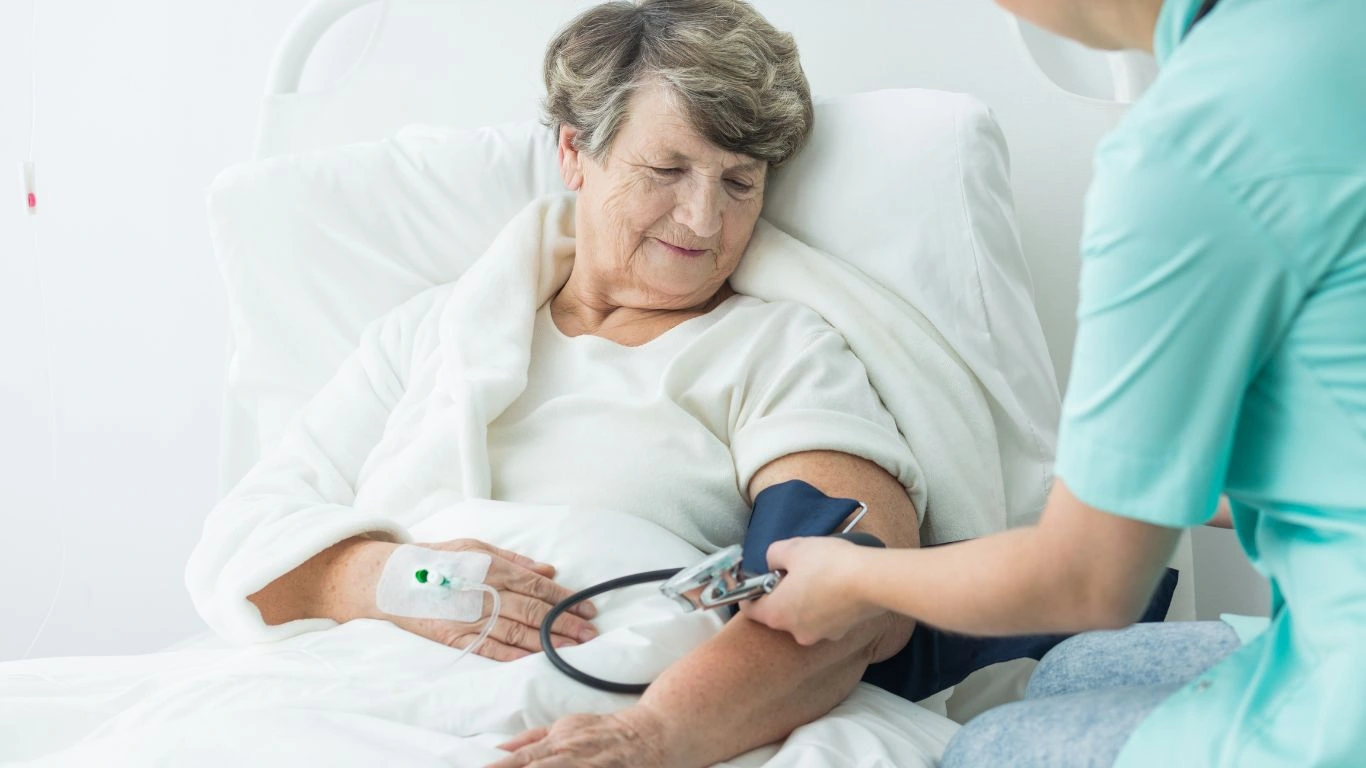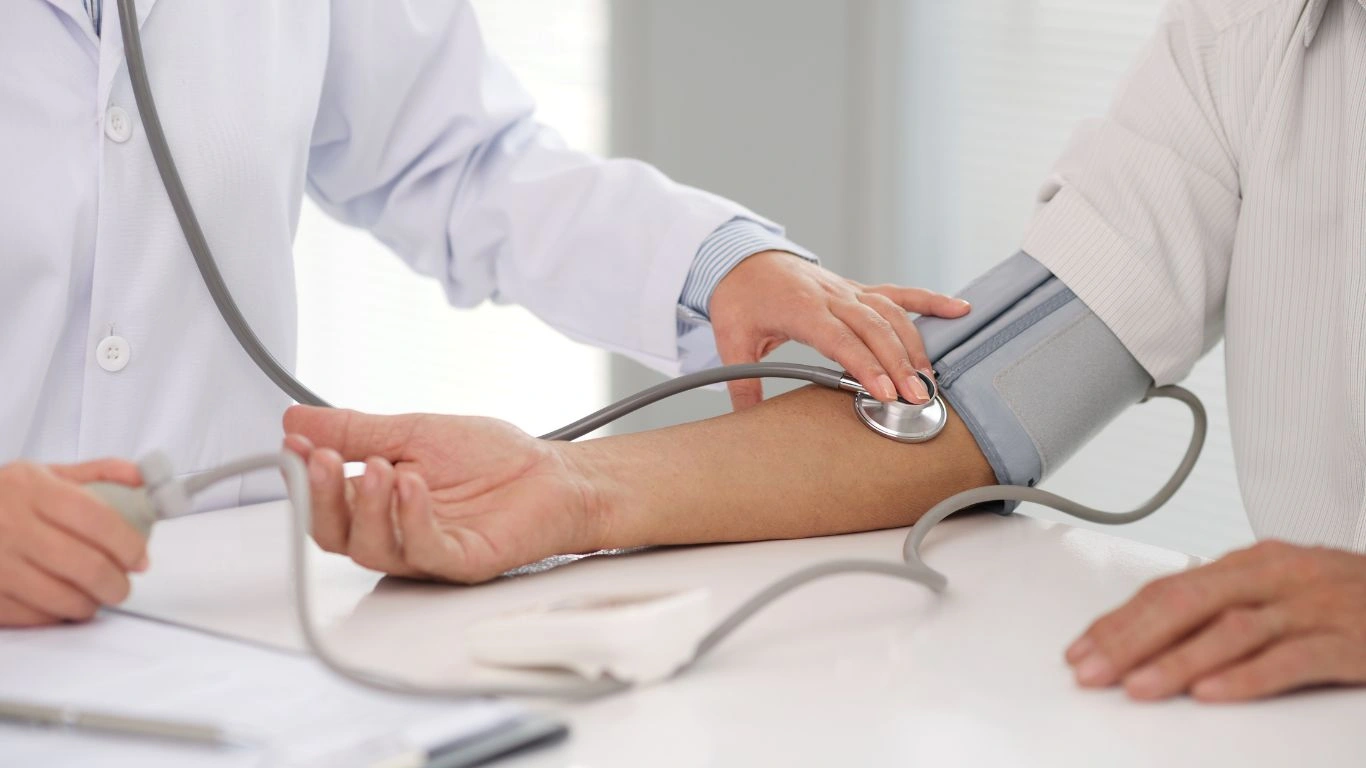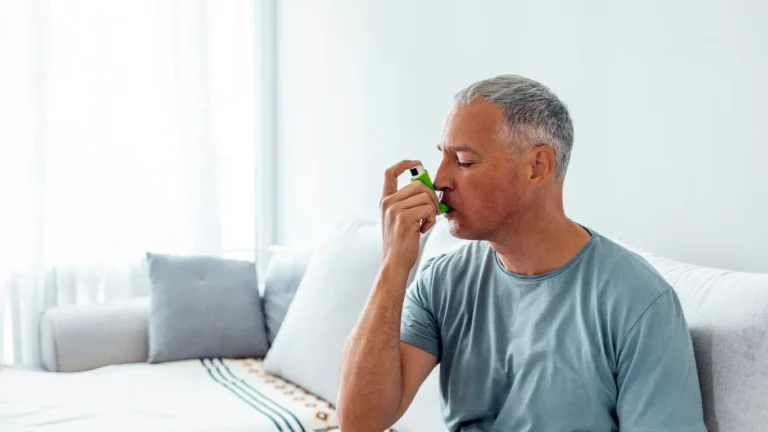Natural Ways to Prevent High Blood Pressure in Seniors – Stay Healthy!
High blood pressure, or hypertension, isn’t just another “aging thing” we have to accept. I’ve spent years helping people manage and prevent hypertension, and let me tell you—there are plenty of natural ways to prevent high blood pressure in older adults. You don’t need to rely solely on medication if you take the right steps early. Whether you’re looking to keep your numbers in check or help a loved one, these tips are simple, effective, and (best of all) doable in everyday life.
Understanding Blood Pressure and Aging
Before we dive into prevention strategies, let’s talk about what happens to blood pressure as we age. Many of my patients are shocked to find out that even if they had perfect blood pressure in their 40s, things can shift in their 50s, 60s, and beyond. This happens because:
- Arteries naturally stiffen over time, making it harder for blood to flow smoothly.
- Years of lifestyle habits—good or bad—start to catch up.
- Other age-related conditions, like kidney function decline, can contribute to higher numbers.
But here’s the good news: Just because blood pressure tends to rise with age doesn’t mean we can’t do something about it!
 Staying Active: The Heart’s Best Friend
Staying Active: The Heart’s Best Friend
I’ve had countless patients tell me, “I’m too old to start exercising.” But here’s the reality—movement is medicine. Even if you’ve never stepped foot in a gym, your heart (and blood pressure) will thank you for adding more activity into your daily routine.
Why Exercise Works Wonders for Blood Pressure
Regular movement helps your arteries stay flexible, improves circulation, and makes your heart more efficient at pumping blood. It’s one of the most powerful natural ways to lower blood pressure—and you don’t need to run marathons to see results.
Simple Ways to Stay Active
- Daily Walks: A 30-minute walk can do wonders. Start slow and build up over time.
- Strength Training: Lifting light weights or using resistance bands helps maintain muscle and supports heart health.
- Stretching & Balance: Yoga and tai chi are great for circulation and relaxation.
- Making Movement Fun: Dance, garden, or play with grandkids—just keep moving!
If you’re new to exercise, start with small goals. Even five-minute bursts of activity add up over time.
 Eating Smart: The Best Foods for Blood Pressure
Eating Smart: The Best Foods for Blood Pressure
“You are what you eat” couldn’t be truer when it comes to blood pressure. I’ve seen patients make small diet changes that led to big improvements in their numbers.
The Power of Potassium and Magnesium
These two minerals are crucial for keeping blood pressure in check:
- Potassium: Found in bananas, sweet potatoes, and leafy greens, it helps balance sodium levels.
- Magnesium: Nuts, seeds, and whole grains are packed with magnesium, which supports healthy blood vessels.
Foods That Help Lower Blood Pressure Naturally
Fill your plate with these blood pressure-friendly options:
- Leafy Greens: Spinach, kale, and Swiss chard are packed with potassium.
- Berries: Blueberries and strawberries contain antioxidants that improve circulation.
- Oats: A fiber-rich powerhouse that helps maintain stable blood pressure.
- Beets: Their nitrates help dilate blood vessels, improving blood flow.
- Fatty Fish: Salmon and mackerel are rich in omega-3s, great for heart health.
By making smart food choices, you’re giving your body the nutrients it needs to keep your blood pressure in a healthy range.
 Managing Stress: The Overlooked Factor in Blood Pressure Control
Managing Stress: The Overlooked Factor in Blood Pressure Control
Let’s talk about stress—because trust me, I’ve seen firsthand how much it impacts blood pressure. I’ve had patients who eat perfectly, exercise daily, but still struggle with high numbers. Why? Because chronic stress keeps their bodies in a constant state of “fight or flight,” pumping out stress hormones like cortisol and adrenaline that raise blood pressure over time.
How Stress Affects Blood Pressure
When you’re stressed, your body reacts as if you’re in danger—your heart rate speeds up, blood vessels constrict, and blood pressure spikes. Over time, this can turn into a long-term problem. But the good news? There are natural ways to keep stress in check.
Simple, Science-Backed Stress Management Techniques
- Deep Breathing: Slow, deep breaths signal to your body that it’s time to relax. Try inhaling for four counts, holding for four, then exhaling for six.
- Mindfulness & Meditation: Even five minutes a day can help calm the nervous system and lower blood pressure.
- Daily Gratitude: Studies show that focusing on positive things helps reduce stress levels. Keep a small gratitude journal—it works wonders!
- Listening to Music: Calming music, especially classical or nature sounds, has been shown to lower blood pressure.
For my more skeptical patients, I always say: Just try it. Start with five minutes a day. You might be surprised at how much lighter you feel.
 Quality Sleep: The Underrated Key to Healthy Blood Pressure
Quality Sleep: The Underrated Key to Healthy Blood Pressure
Here’s something that often gets overlooked: Poor sleep can wreak havoc on your blood pressure. I’ve had patients who improved their sleep habits and saw their numbers drop—no drastic diet changes, no new medications. Just better sleep.
Why Sleep Matters for Blood Pressure
When you sleep, your body gets a chance to reset. Blood pressure naturally dips at night, allowing your heart and blood vessels to rest. But if your sleep is disrupted—whether from insomnia, sleep apnea, or late-night stress—your blood pressure stays elevated, increasing your risk of hypertension.
How to Improve Sleep for Better Blood Pressure
- Stick to a Schedule: Going to bed and waking up at the same time every day helps regulate your body’s natural rhythms.
- Create a Relaxing Routine: A warm bath, reading, or light stretching before bed can signal your body that it’s time to wind down.
- Limit Screen Time: The blue light from phones and TVs disrupts melatonin production, making it harder to fall asleep.
- Watch Your Caffeine & Alcohol Intake: Both can interfere with sleep quality, especially if consumed late in the day.
- Check for Sleep Apnea: If you snore loudly or wake up gasping, talk to your doctor—it could be affecting your blood pressure.
Many older adults struggle with sleep, but making a few simple changes can lead to better rest—and better blood pressure control.
Hydration & Sodium Balance: Small Tweaks, Big Impact
Let’s talk about something basic but incredibly important: water and salt. Two things that seem simple but play a huge role in blood pressure regulation.
The Role of Hydration in Blood Pressure
Not drinking enough water can make blood thicker and more difficult for your heart to pump. Dehydration also triggers the body to release stress hormones, which (you guessed it) raise blood pressure.
Tips for Staying Hydrated
- Carry a reusable water bottle and sip throughout the day.
- Eat water-rich foods like cucumbers, watermelon, and oranges.
- Drink herbal teas or infused water if plain water feels boring.
- Aim for at least 6-8 cups of water daily, more if you’re active.
Smart Sodium Choices
Salt isn’t the enemy—too much processed sodium is. The problem isn’t the pinch of salt on your homemade meal; it’s the hidden salt in processed foods.
Easy Ways to Reduce Excess Sodium
- Check labels—look for low-sodium options when buying packaged foods.
- Use herbs and spices to flavor meals instead of extra salt.
- Limit canned soups, deli meats, and frozen dinners—they’re sodium bombs!
- Rinse canned beans and vegetables to remove excess salt.
By balancing hydration and sodium, you’re helping your heart work more efficiently and keeping blood pressure in check.
 Case Studies & Real-Life Examples
Case Studies & Real-Life Examples
Now, I know it’s one thing to read about all these natural ways to prevent high blood pressure in older adults, but it’s another to see them work in real life. Over the years, I’ve worked with many patients who turned their health around by making simple but powerful lifestyle changes.
Meet Janet: The Power of Small Changes
Janet, 67, came to me frustrated. Her blood pressure hovered around 145/90, and she didn’t want to rely on medication unless absolutely necessary. We started small—daily walks, more potassium-rich foods, and stress-reducing techniques like deep breathing. Three months later? Her readings were consistently below 130/80, and she felt more energetic than she had in years.
Roger’s Story: Overcoming Stress-Induced Hypertension
Roger, 72, had textbook “white coat syndrome.” His numbers skyrocketed every time he stepped into a doctor’s office. But the problem wasn’t just anxiety at check-ups—his daily stress was keeping his blood pressure elevated. By focusing on mindfulness, cutting back on caffeine, and improving sleep, he saw steady improvements, bringing his levels back to a healthy range.
These stories prove that it’s never too late to make changes. Your heart and arteries will thank you for every positive step you take.
Key Takeaways: What You Need to Remember
We’ve covered a lot, so let’s break it down into the essential points you can start applying today:
- Move Your Body: Exercise—whether it’s walking, yoga, or light strength training—helps keep blood pressure in check.
- Eat Smart: Focus on whole, nutrient-dense foods like leafy greens, berries, oats, and fatty fish.
- Manage Stress: Deep breathing, meditation, and mindful activities help lower blood pressure naturally.
- Prioritize Sleep: A well-rested body leads to better blood pressure control.
- Watch Your Hydration & Sodium Intake: Drink plenty of water and limit processed foods loaded with salt.
Even adopting just a couple of these strategies can make a significant impact over time.
FAQs
Q: Can I lower my blood pressure naturally without medication?
A: Absolutely! Many older adults successfully manage their blood pressure through lifestyle changes alone. However, it’s important to work with your doctor to determine the best approach for you.
Q: How quickly can I see results from these lifestyle changes?
A: Some people notice improvements in just a few weeks, while others may take a few months. Consistency is key! Small, steady changes add up over time.
Q: Is coffee bad for blood pressure?
A: It depends on the individual. Some people experience temporary spikes in blood pressure from caffeine, while others don’t. If you’re sensitive to caffeine, try cutting back and see if it makes a difference.
Q: What’s the best type of exercise for lowering blood pressure?
A: Anything that gets you moving! Walking, swimming, strength training, and yoga are all excellent options. Find something you enjoy so you’ll stick with it.
Bonus: Additional Resources & DIY Tips
For those looking to dive deeper, here are some fantastic resources to help you on your journey:
- American Heart Association – Reliable information on hypertension and heart health.
- National Heart, Lung, and Blood Institute – Science-backed guidance on blood pressure management.
- Mayo Clinic – Expert articles on lifestyle changes for hypertension.
Want a quick DIY strategy? Try making your own blood-pressure-friendly smoothie with these simple ingredients:
- 1 banana (potassium boost!)
- 1/2 cup blueberries (antioxidants galore)
- 1 handful of spinach (magnesium powerhouse)
- 1 tablespoon flaxseeds (heart-healthy fats)
- 1 cup almond milk
Blend and enjoy—your heart will thank you!
Appendix: References, Disclaimer & Call to Action
References
For more scientific details, check out these sources:
- National Library of Medicine – Clinical studies on hypertension.
- Centers for Disease Control and Prevention – Public health insights on blood pressure.
Disclaimer
The information in this article is for educational purposes only and should not replace professional medical advice. Always consult with a healthcare provider before making any major changes to your health routine.
Final Call to Action
High blood pressure doesn’t have to be an inevitable part of aging. With the right lifestyle adjustments, you can maintain a strong, healthy heart well into your golden years. Ready to take action? Start with just one small change today—your future self will thank you!

Dr. Gwenna Aazee is a board-certified Internal Medicine Physician with a special focus on hypertension management, chronic disease prevention, and patient education. With years of experience in both clinical practice and medical writing, she’s passionate about turning evidence-based medicine into accessible, actionable advice. Through her work at Healthusias.com, Dr. Aazee empowers readers to take charge of their health with confidence and clarity. Off the clock, she enjoys deep dives into nutrition research, long walks with her rescue pup, and simplifying medical jargon one article at a time.


 Staying Active: The Heart’s Best Friend
Staying Active: The Heart’s Best Friend Eating Smart: The Best Foods for Blood Pressure
Eating Smart: The Best Foods for Blood Pressure Managing Stress: The Overlooked Factor in Blood Pressure Control
Managing Stress: The Overlooked Factor in Blood Pressure Control




